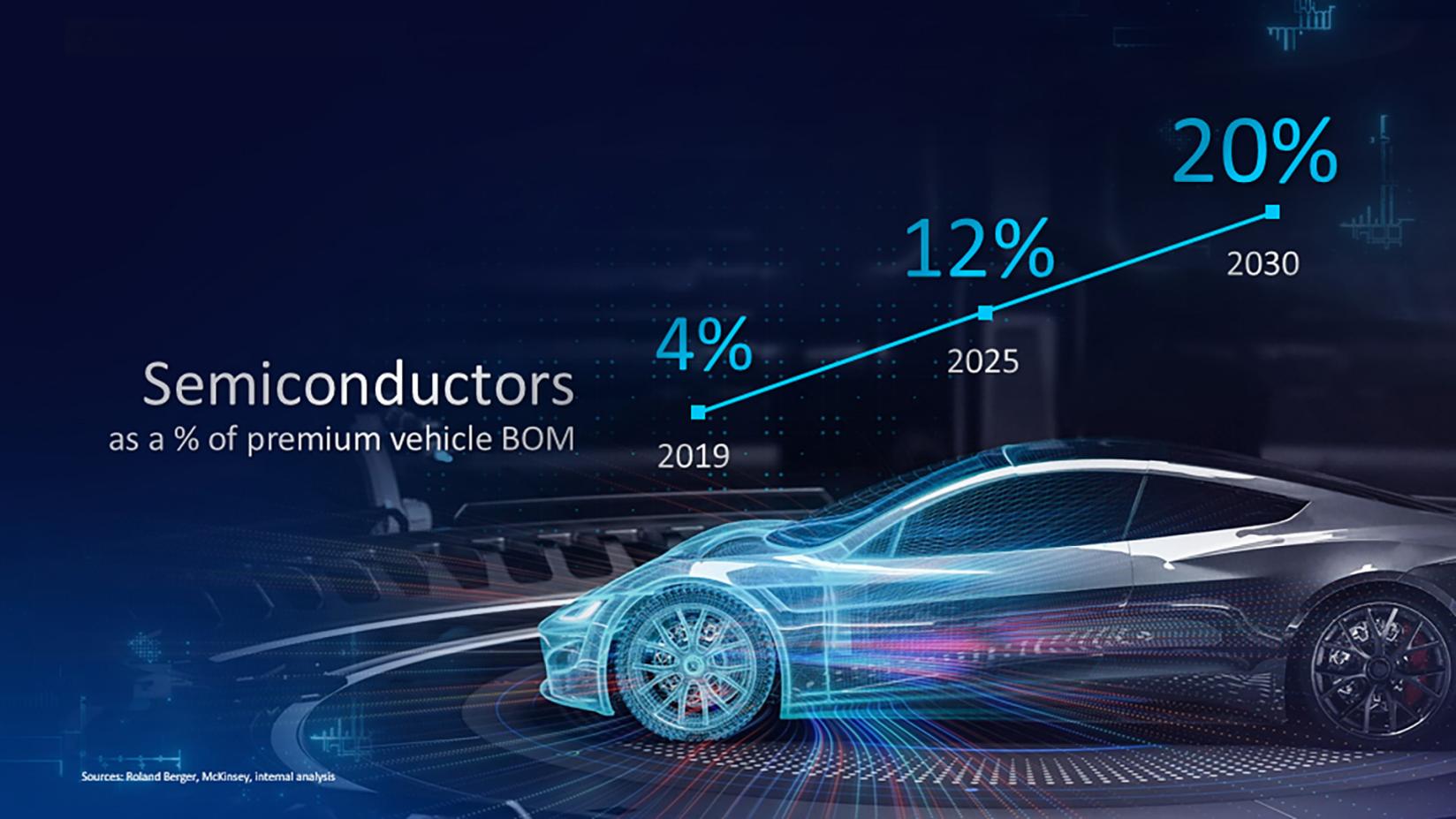Intel outlines plans to ramp chip production and help automotive industry customers modernize designs to leverage leading edge silicon.
During his first in-person keynote since taking the helm of Intel in February, CEO Pat Gelsinger predicted that semiconductors will account for more than 20% of the total premium vehicle bill of materials (BOM) by 2030. That represents a staggering 5X growth rate over 2019’s 4% figure. This comes amid increasing demand for semiconductors generally. Gelsinger predicted the total addressable market (TAM) for automotive semiconductors will nearly double by the end of the decade to $115 billion, accounting for more than 11% of the entire silicon TAM. This trend is being driven by what Gelsinger called “the digitization of everything” and four superpowers – ubiquitous compute, pervasive connectivity, cloud-to-edge infrastructure, and AI – that are permeating the automotive and mobility industries.
Gelsinger described the situation as both a massive challenge and enormous opportunity – and the perfect time for Intel to step up to the plate. “This new era of sustained demand for semiconductors needs bold, big thinking,” said Gelsinger. “As CEO of Intel, I have the great privilege to be in a position to marshal the energies of 116,000 employees and a massive chip-design and manufacturing ecosystem, to meet the demand.”
Intel Investment in Europe
To make his point, Gelsinger reminded the audience that Intel has plans to build at least two new leading-edge semiconductor factories in Europe with plans for future investments that could reach 80 billion euros over the next decade. He also detailed elements of the company’s previously announced IDM 2.0 strategy and shared how those programs will apply specifically for the automotive and mobility industries in the European Union.
Intel Foundry Services, announced in March, is actively engaged in discussions with potential customers in Europe – including automotive companies and their suppliers. Today, the majority of automotive chips are manufactured using legacy process technologies. As automotive applications transition to rely on more high-performance processing, chips are also beginning to migrate to more advanced process technologies. Intel is partnering with leading automotive players and committing significant resources in Europe to help drive this transition around the globe in the coming years. The company announced plans today to establish committed foundry capacity at its fab in Ireland and launch the Intel Foundry Services Accelerator to help automotive chip designers transition to advanced nodes. For this, the company is standing up a new design team and offering both custom and industry-standard intellectual property (IP) to support the unique needs of automotive customers.























